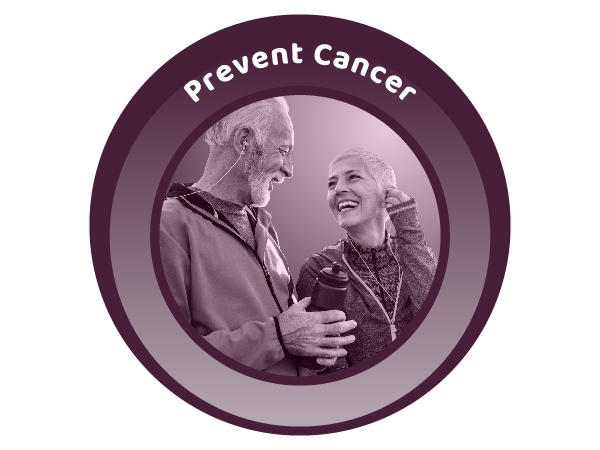Imagine if most cancers never occurred. This is becoming more possible, as scientists estimate that we could prevent more than half of all cancers by better applying knowledge we already have. That means taking what we know about the risk factors for, causes of, and development of many cancers and using that information to better monitor and identify anything abnormal before it becomes cancer and to encourage behaviors that help minimize the risk of getting cancer.
The state of cancer prevention today
Many approaches to cancer prevention involve taking steps to reduce one’s risk of developing cancer, such as quitting smoking, wearing sunscreen, and keeping up to date with cancer screenings.
But changing human behavior is not easy. Getting more people to adopt and follow these preventive behaviors, especially among groups that have been medically underserved, could significantly lower the number of people being diagnosed with cancer.
Researchers also continue to study how to reduce cancer disparities, limit exposure to risk factors, and intercept cancer (identify and treat certain lesions before they become cancer), among other prevention approaches. However, there is still a great need for more research to understand what causes precancers and how they develop so that we can create effective prevention or interception methods for all cancers.
Strategies to advance cancer prevention
- Investigate what causes cancer and how precancers develop based on a person’s genetics, behavior, environment, and health history
- Create and test ways to promote preventive behaviors to individuals and communities
- Eliminate infections that lead to cancer
- Create vaccines that prevent cancer
- Develop approaches to limit exposure to toxins
- Increase focus on cancer prevention clinical trials
- Overcome health disparities at all levels and in all aspects of cancer prevention research
Examples of NCI-supported research to achieve this goal
- Clinical trials are testing two different vaccines to prevent or delay the onset of cancers associated with Lynch syndrome.
- The PREVENT program is supporting development of the best ideas in cancer prevention, with a focus on currently unmet needs.
Examples of activities across the government to achieve this goal
- The Environmental Protection Agency has a wide range of efforts to assess risk and reduce exposure to carcinogens, described on a new website.
- The National Aeronautics and Space Administration is working to identify medicines and dietary supplements that could help reduce the risk of cancer from radiation exposure.
- The Agricultural Science Center of Excellence for Nutrition and Diet for Better Health (ASCEND for Better Health), launched by the U.S. Department of Agriculture (USDA), aims to accelerate research on diet-related chronic diseases, including cancer, and to translate research into solutions that improve public health and well-being.
- American Indian and Alaska Native people have a higher risk of getting several types of cancer compared with other race and ethnicity groups. The Indian Health Service shares cancer prevention and intervention webinars and downloadable posters, infographics, and fact sheets to increase awareness about the importance of getting early preventive cancer screening.
